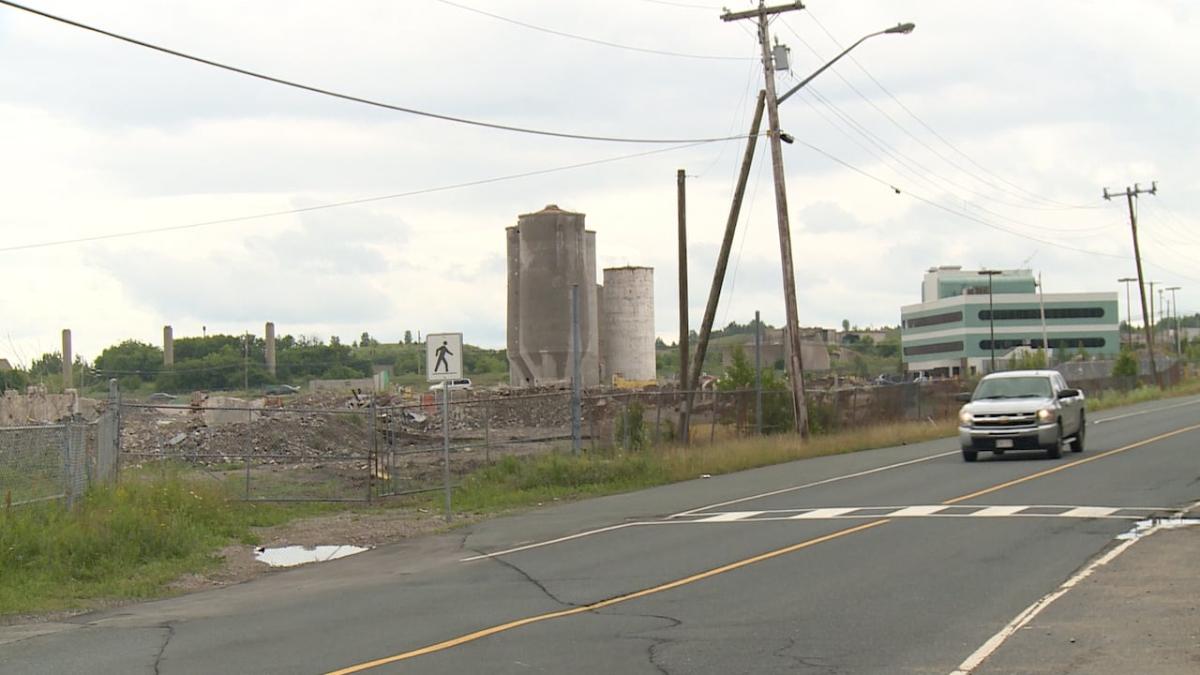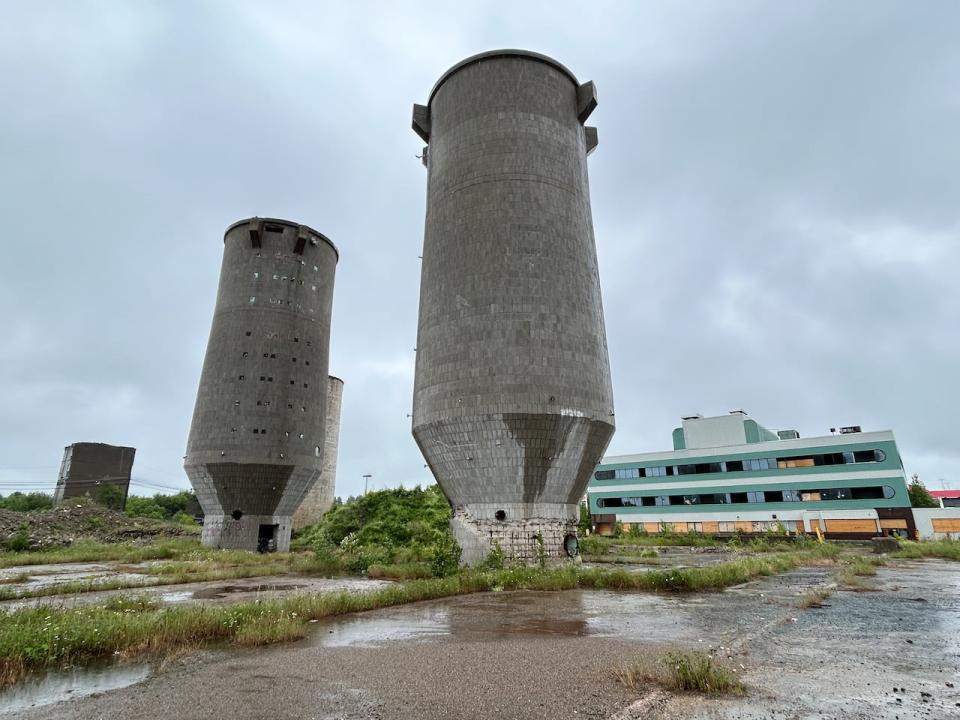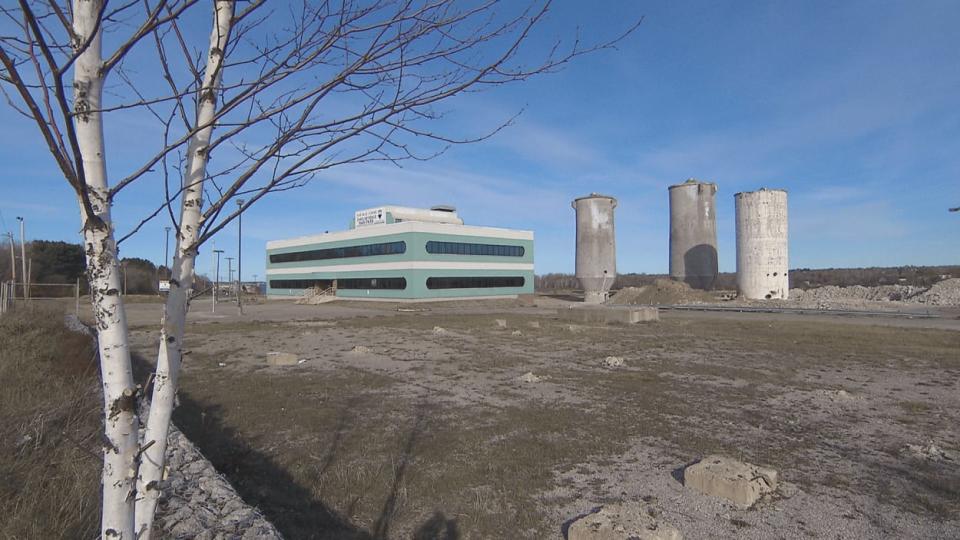


As the province selects a bidder to clean up an abandoned Bathurst mill site, a local official wants to see stronger rules to prevent the same situation from happening again.
For the past 20 years, towering silos, old concrete pillars and tanks have sat on a waterfront property spanning more than eight hectares, or 20 acres, along the main drive into Bathurst.
Once an employer of thousands and a sign of economic prosperity, Deputy Mayor Michael Willett said the old Smurfit-Stone mill site has been an eyesore for the northern town since about 2005.
“Right now it looks like a war zone,” Willett said. “It’s a dangerous site. There’s holes, there’s pits, there’s tanks that are left there. The silos are unreal. The building has had numerous fires in it with the homeless people going in there.”

The site of the former Smurfit-Stone mill in Bathurst remained untouched for nearly 20 years after the company shut down in 2005. (Serge Bouchard/Radio-Canada)
In late August, the province issued a call for bidders on site demolition, after taking ownership of the site in June.
That comes after former private owners failed to complete the required environmental remediation.
But the cleanup will cost taxpayers between $12 and $16 million — a situation Willett finds unacceptable.
“We don’t really have any rules and regulations on remediation and the way things are done, so if you don’t have a good corporate citizen, they can just pack up and leave — leave the province, leave the cities with the problems to clean up and fend for themselves.”
It’s an issue a 2022 report from the province’s auditor general zeroed in on.
It found the province had stopped tracking “orphan contaminated sites” — those abandoned by a private owner unable to afford remediation — since 2009.


The Smurfit-Stone property is located along a main entry point into Bathurst. (Radio-Canada)
Auditor General Paul Martin wrote that if no one takes ownership, orphan properties revert back to provincial ownership — and the longer they are contaminated, the more costly remediation may become.
That report recommends the Department of Environment and Local Government re-introduce a program to track and address orphan contaminated sites.
It’s not clear whether the province has implemented that, as its response to the auditor general agrees to “explore options for government consideration.”
The province did not respond on Friday to a request for information about site cleanup obligations and whether it would consider making an update.
Willett suggests addressing the problem by having companies pay up front for possible remediation costs.
“There’s got to be some kind of fund that these companies pay into, that if something like this happen, that it’s not subsidized by the government or taxpayers again,” he said.
Willett said the city had explored the idea of taking over site cleanup and development, but realized it wasn’t feasible after a study with the province’s Regional Development Corporation.
“We found out exactly what the problems were and how much it was going to cost, and it was definitely not something the city could do by itself,” he said.
“It would bankrupt the city.”
The parcels of land in question are located north of Bridge Street, south of Bridge Street, and west of the Nepisiguit River, and have more than $2.5 million in property taxes owed.
Now an eyesore, Willett envisions the land post-cleanup offering waterfront housing, new businesses and trails.
“It’s right on the river, it’s just a gorgeous, gorgeous place. It’s just sad to see that for 20 years it’s been in that state.”